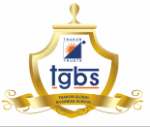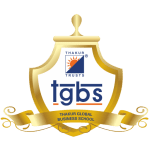HR analytics plays a pivotal role in modern organisations by leveraging data to inform strategic decisions. As organisations strive for efficiency and productivity, data-driven HR decisions are paramount. David Green, HR Analytics Expert.
In the dynamic landscape of human resources, data-driven decision-making has become the bedrock of successful HR strategies. This blog delves into the valuable insights and perspectives gained from PGDM (Post Graduate Diploma in Management) programmes, where the next generation of HR professionals is being equipped with the knowledge and skills necessary to harness HR analytics for informed decision-making. Join us as we explore the symbiotic relationship between HR analytics and PGDM programmes and how this partnership is shaping the future of human resources.

Table of content
- Role of Analytics in various industries
- Types of Analytics
- People Analytics: The most important area of HR analytics
- Course curriculum and subjects covered in a 1-year PGDM course in HR
- Real-world case study in HR analytics post PGDM
Role of Analytics in various industries
Analytics refers to the systematic analysis of data or information to extract meaningful insights and make informed decisions. PGDM programmes at Thakur Global Business School, Mumbai, specifically focus on analytics because analytics plays a crucial role in various fields and industries for several reasons:
- Data-Driven Decision Making: Analytics helps organisations make informed decisions based on data rather than relying solely on intuition or guesswork. This leads to more accurate and effective decision-making.
- Identifying Trends and Patterns: By analysing data, organisations can identify trends, patterns, and correlations that may not be apparent through casual observation. This can be particularly valuable for predicting future outcomes.
- Optimising Processes: Analytics can be used to analyse and improve business processes. This can lead to cost savings, increased efficiency, and better resource allocation.
- Customer Insights: Understanding customer behaviour and preferences through analytics allows organisations to tailor their products, services, and marketing strategies to better meet customer needs.
- Risk Management: Analytics is essential for assessing and managing risks. In finance, for example, it is used to evaluate investment risks. In healthcare, it helps identify potential health risks and manage patient outcomes.
- Performance Monitoring: Analytics can be used to monitor the performance of systems, processes, and employees. This is critical for identifying areas that need improvement.
- Competitive Advantage: Organisations that effectively leverage analytics can gain a competitive advantage. By making data-driven decisions and adapting quickly to changing circumstances, they can outperform competitors.
- Personalisation: Analytics is crucial in creating personalised experiences for customers. For example, online retailers use it to recommend products based on a user’s past behaviour and preferences.
- Predictive Analytics: Predictive analytics uses historical data to forecast future trends or events. This can be applied in various domains, from sales forecasting to disease outbreak prediction.
- Resource Allocation: Whether it’s allocating marketing budgets, manpower, or inventory, analytics helps organisations allocate resources efficiently to maximise returns.
- Fraud Detection: In finance and e-commerce, analytics is used to detect and prevent fraudulent activities by analysing transaction data and identifying suspicious patterns.
- Scientific Research: Analytics is vital in scientific research for data analysis, hypothesis testing, and drawing conclusions from experimental data.
- Government and Policy: Governments use analytics to make evidence-based policy decisions and to allocate resources effectively for public services.
- Healthcare: In healthcare, analytics is used for patient care management, clinical decision support, and epidemiological studies.
- Environmental Analysis: Analytics can help monitor environmental data, such as air and water quality, and make informed decisions about environmental policies and practises.
Types of Analytics
There are different types of analytics that are focused on during a PG Diploma in HR, Marketing, Finance and more.
Descriptive Analytics: Descriptive analytics focuses on summarising historical data to provide insights into what has happened in the past. It helps organisations understand trends, patterns, and key performance indicators (KPIs). Common tools used in descriptive analytics include charts, graphs, dashboards, and basic statistical analysis.
Diagnostic Analytics: Diagnostic analytics goes a step further by examining historical data to understand why specific events or trends occurred. It involves identifying the root causes of problems or anomalies. Techniques like drill-down analysis and root-cause analysis are commonly used in diagnostic analytics.
Predictive Analytics: Predictive analytics involves using historical data to build models and make predictions about future events or trends. This type of analytics uses statistical algorithms and machine learning to forecast outcomes. Common applications include demand forecasting, risk assessment, and predictive maintenance.
Prescriptive Analytics: Prescriptive analytics takes predictive analytics a step further by recommending actions to optimise outcomes. It not only predicts future scenarios but also suggests the best course of action to achieve the desired results. Optimisation algorithms and decision support systems are often used in prescriptive analytics.
People Analytics: The most important area of HR analytics
People analytics, also known as workforce analytics or HR analytics, is the application of data analysis and statistical techniques to human resources (HR) data to gain insights and make data-driven decisions about an organisation’s workforce. Its best practices include collecting, processing, and analysing data related to employees and their interactions with the aim of improving HR practices, enhancing employee performance, and driving organisational success.
People analytics, when included in the curriculum of PGDM in HR colleges, can provide valuable insights into areas such as talent management, employee engagement, recruitment, and retention. Here are some key aspects of people analytics:
- Talent Acquisition: People analytics can help organisations optimise their recruitment processes by analysing data related to job applicants, including their qualifications, experience, and performance in interviews. It can also identify the most effective channels for sourcing talent.
- Employee Engagement: Understanding and improving employee engagement is a crucial aspect of people analytics. By analysing employee survey data, feedback, and performance metrics, organisations can identify factors that contribute to employee engagement and take steps to enhance it.
- Retention: High employee turnover can be costly for organisations. People analytics can help identify the factors that lead to attrition and enable organisations to develop retention strategies. By analysing exit interviews, performance data, and employee feedback, companies can make data-driven decisions to reduce turnover.
- Performance Management: People analytics can assist in evaluating employee performance objectively. It can help identify top performers, areas where improvement is needed, and the impact of various factors on performance. This information can inform decisions related to promotions, training, and development.
- Diversity and Inclusion: Analysing HR data can help organisations measure and improve diversity and inclusion efforts. It can highlight disparities in hiring, promotion, and compensation, allowing organisations to address bias and promote a more inclusive workplace.
- Workforce Planning: People analytics can support strategic workforce planning by forecasting future talent needs based on business goals and growth projections. This helps organisations ensure they have the right talent in place to meet their objectives.
- Learning and Development: By analysing training and development data, organisations can determine the effectiveness of learning programmes and make adjustments to align them with employee and organisational needs.
- Compensation and Benefits: Analysing compensation and benefits data can help organisations ensure that their compensation packages are competitive, fair, and aligned with performance and market conditions.
- Health and Well-Being: People analytics can also be applied to analyse employee health and well-being data. This can include tracking absenteeism, workplace injuries, and employee assistance programme utilisation to address health-related issues.
- Predictive Analytics: Advanced analytics techniques can be used for predictive purposes, such as forecasting turnover, identifying flight risk among employees, and predicting future skills gaps.
- Ethical Considerations: As with any data analysis, people analytics must be conducted ethically and with respect for individual privacy. Ensuring data privacy and security is crucial when handling employee data.
“As organisations increasingly rely on HR analytics for informed decision-making, a PG diploma in HR with a strong emphasis on analytics equips students with the skills to bridge the gap between human resources and data science.” – Mr. Vishwajit Vishwakarma, Associate- Global Recruitment from GEP Worldwide
Course curriculum and subjects covered in a 2-year PGDM Programme in HR
A 2-year PGDM course with a specialisation in HR Analytics offers a comprehensive curriculum designed to equip students with the essential knowledge and skills to excel in the field of HR.
The course covers a wide range of subjects, including:
- Organisational Behaviour
- HR Management
- Talent Acquisition and Retention
- Compensation and Benefits
- Training and Development
- Labour Laws
- Employee Relations
Students also delve into areas such as strategic HR management, diversity and inclusion, performance management, and change management.
Practical elements like case studies, group projects, and internships are integrated into the curriculum to prepare students for real-world HR challenges, making this PGDM programme a well-rounded and valuable choice for those aspiring to succeed in the dynamic field of human resources.
Real-world case study in HR analytics post PGDM
Challenge: After completing a PG Diploma in Human Resource Management, John, a human resources analyst at Tata Consultancy Services, used his newly acquired skills to address high employee turnover in the company’s software development division.
Analysis: He began by collecting and analysing data on employee satisfaction, performance, and tenure. Through HR analytics, the analyst identified a correlation between turnover and the length of time employees spent on specific projects, as well as dissatisfaction with the project allocation process.
Result: Using these insights, he revamped the project allocation system, providing employees with more choice and ensuring fair workload distribution. As a result, turnover decreased by 20%, saving the company significant recruitment and training costs while also boosting employee morale and productivity.
This successful case study demonstrated the practical application of HR analytics skills acquired during the PGDM programme and highlighted the potential for data-driven decision-making to improve organisational outcomes.
Conclusion
In conclusion, HR analytics has emerged as a transformative tool in PGDM programmes, offering valuable insights into the realm of human resource management. By harnessing data-driven decision-making, students and professionals in this field can make informed choices, optimise employee performance, and drive organisational success.

















